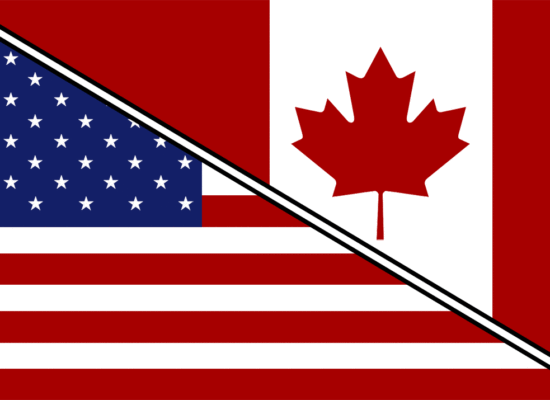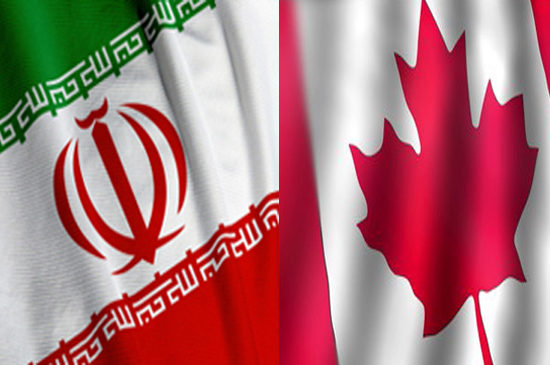Open Work Permit Canada

Open Work Permit Canada
Open Work Permit is a good solution for successful immigration to Canada. A work visa not only opens the door for foreigners to Canada but also gives the chance to learn and experience Canadian life from the inside. By working in Canada, an individual will be able to quickly and easily learn English or French, he or she will become better acquainted with local immigration law and will see the picture of what is happening in the country much more clearly. Also, being in Canada under a work visa will open up many more opportunities for a foreigner to take root in this country and start building the future in a place with a family. After working in Canada for at least one year, human beings are eligible to apply for Permanent Residence status and remain permanently in Canada. But, first, you need to obtain a work permit in Canada (Work Permit). This document is issued based on a work invitation from the employer for the duration of the contract with the right to renew. With Work Permit an individual will be able to work in Canada legally and use all social protection measures provided for by the legislation of this state. There are several types of work permits such as standard (or closed), open, bridging open work permit, and so on. In this article, we will discuss the application for an open work permit, its advantages and disadvantages, eligibility of candidates and the exceptions.
An open work permit is a form that allows people to work in Canada. Depending on the situation, an individual can get work permits of different types. An open work permit is a document that allows newcomers to work for any employer in Canada other than those on the list of inappropriate employers and sex workers. This means that when submitting the application, an applicant does not need a copy of the LMIA (Labour Market Impact Assessment also known as Labour Market Opinion) - a document issued by Employment and Social Development Canada (ESDC) that allows the locals to hire foreign workers. Therefore, the employer does not need to go through a rather complicated and lengthy process of obtaining an LMIA. Obtaining a work permit of this type does not require a preliminary search for an employer and, accordingly, a permit to attract foreign labour. There is no necessity of getting a job offer as well, unlike with a standard work permit that requires to be attached to one location and strictly following a profession written in a contract. With an open work permit, a human being is free to move to different parts of the country and can decide himself or herself which occupation, the field of work and location to choose for a living. However, there are 2 types of open work permits: unrestricted and restricted. The former type allows an individual to work in any profession and anywhere in Canada, the latter case requires special conditions. If a person is working under provincial programs, the limited open work permit may restrict where he or she can live, and employment limits may apply if there are any health concerns.
Open Work Permit Canada: Post-Graduate Work Permit
Unfortunately, not all people can apply for an open work permit, an individual must have a reason to do so. The first eligible category for an open work permit in Canada is the foreign graduates who hold a Post-Graduation Work Permit (PGWP). The Post-Graduation Work Permit program was created by the Canadian immigration service specifically to somehow keep the graduates of their universities in the country to get more educated professionals. This program allows graduates to obtain a work permit in Canada for up to 3 years and goes to work for any employer in the country. An official contract with a Canadian employer is not required to obtain this type of work permit. To be eligible for PGWP, a student must graduate from a designated learning institution and obtain a diploma or a certificate. Also, he or she studied full-time for not less than 8 months and applied within 6 months after the official has written confirmation from the educational institution about the fulfilment of the program requirements was received. The spouses or common-law partners of the international students are also eligible for the permit. Nevertheless, not only graduates with PGWP are eligible but also foreign students whose studies were not paid due to difficult financial situations.

Open Work Permit Canada: Spousal Open Work Permit
An application for an open work permit in Canada for a spouse can be submitted at the same time as the main application for a work or study permit (as long as the above conditions are met). In other words, you and your spouse can apply in one package (but service fees, of course, will have to be paid for each) for both permits and visas. In another case, the spouse of a foreign worker or student can obtain a regular temporary resident visa (at any time), enter Canada and from there apply for a work permit. If you have already applied for a sponsorship and received approval for your permanent residency application, you can apply for an open work permit online. The approval is a letter from Immigration, Refugees and Citizenship Canada stating that the residency requirements have been met, but that medical examinations, due diligence and background checks still need to be done. If you are not approved, the IRCC suggests mailing your application for a work permit. You need to attach all documents and proof of payment.
Foreign temporary workers, who are spouses and common-law partners are eligible for an open work permit as well. However, some conditions must be met. Firstly, the main temporary foreign worker in Canada must be employed in a managerial position or job that is related to a professional, technical or trade field. In other words, the qualification level of the main job of a temporary foreign worker must be at level 0, A or B according to the National Occupational Classification (NOC) and the evidence must be provided. Please note that this skill level requirement does not apply to key temporary foreign workers applying for permanent residence in the province (provincial candidates). Secondly, the temporary foreign worker must be authorized to work in Canada for at least six months and live there. Moreover, the applicants for permanent residence need to be eligible for a Bridging Open Work Permit (BOWP), stay in the country and have an expiring work permit.
In the same way, a pilot program, introduced in December 2014, allows spouses and common-law partners to benefit from financial support under the Inland Spousal / Common-Law Partner Sponsorship Category of the Family Class to obtain an open work permit at the time of filing applications for a permanent residence permit. The couple must meet the requirements for the program as they will need to prove they are in a relationship. If Immigration Canada requires an interview with a sponsored spouse, they will notify you in writing with the date, time and list of documents a human being needs to bring with him. Open work permits for spouses and common-law partners are usually provided for a period that corresponds to the period during which their spouse is permitted to work or study in Canada, depending on the circumstances.

Open Work Permit Canada: Permanent Residency & International Experience Canada Applicants
Another situation, when an individual can apply for an open work permit in Canada, if he or she has already been working in Canada and applied for a permanent residence under one of the immigration schemes such as the Federal Skilled Workers, Atlantic Immigration Pilot, Provincial Nominees Program and others. If an individual has submitted an application for a PR and is waiting for the decision, then his or her dependents can also apply for an open work permit in Canada. This also applies to the participants of the International Experience Canada, which allows young people to obtain a work permit in Canada for one year. This initiative was developed by Canada in collaboration with other 35 countries for international cultural exchange and youth mobility between the ages of 18 and 30 (18 to 35 for Australia). In particular, the participants of the Working Holiday of the IEC are eligible for an open work permit.
Open Work Permit Canada: Refugee Claimants
In addition, individuals, who have been exposed to difficult social experiences like prosecution, war or violence have also the right to apply for an open work permit in Canada. These people will be considered refugees and asylum seekers. Canada is a signatory to the Geneva Convention on Refugees and accepts refugees. A refugee is any person who is persecuted for racial, ethnic, religious, civil, social or political reasons (membership in certain organizations) and is outside the country of his permanent residence and cannot, due to certain circumstances, return and benefit from the protection of that country. If there is a situation where a person is unable to return to their home country because of a well-founded fear of becoming a victim of persecution, on humanitarian grounds, people can apply for permanent resident status in Canada. The employees who have already been working in Canada and obtain a standard (closed) work permit may apply only if they are victims of abuse during their stay in Canada and the abuse is coming from their hiring party
If you need help with Open work permit in Canada or any other types of work permit, please fill in application below or contact us directly.
Open Work Permit Canada:Immigration Application
Open Work Permit Canada:Related Articles
Immigration Consultation in Toronto
Immigration Consultation in Toronto: A Complete Guide Toronto, Canada’s largest and most diverse city, is a major hub for newcomers from around the world. With its multicultural fabric, world-class economy, and high standard of living, […]
EB-2 NIW Visa for Canadians
EB-2 NIW Visa for Canadians: A Comprehensive Guide Introduction The United States has long been a destination of choice for talented professionals and entrepreneurs seeking new opportunities. For Canadian citizens, proximity, cultural similarities, and economic […]
Immigration to Canada for US Citizens
Immigration to Canada for U.S. Citizens Introduction Canada and the United States share not only the world’s longest undefended border but also close economic, cultural, and historical ties. For many Americans, Canada is an appealing […]
Visa and Immigration in Canada for British Citizens
Visa and Immigration in Canada for British Citizens Introduction Canada and the United Kingdom share a rich history, strong diplomatic ties, and deep cultural connections. As members of the Commonwealth, citizens of both countries have […]
Visa and Immigration in Canada for Japanese Citizens
Visa and Immigration in Canada for Japanese Citizens Introduction Canada and Japan share a long-standing relationship built on diplomacy, economic ties, and cultural exchange. Every year, thousands of Japanese citizens travel to Canada for education, […]
Immigration to Canada from Iran
Immigration to Canada from Iran: A Comprehensive Overview Introduction Over the past few decades, Canada has become a beacon of hope for many Iranians seeking a better quality of life, economic opportunity, political stability, and […]






